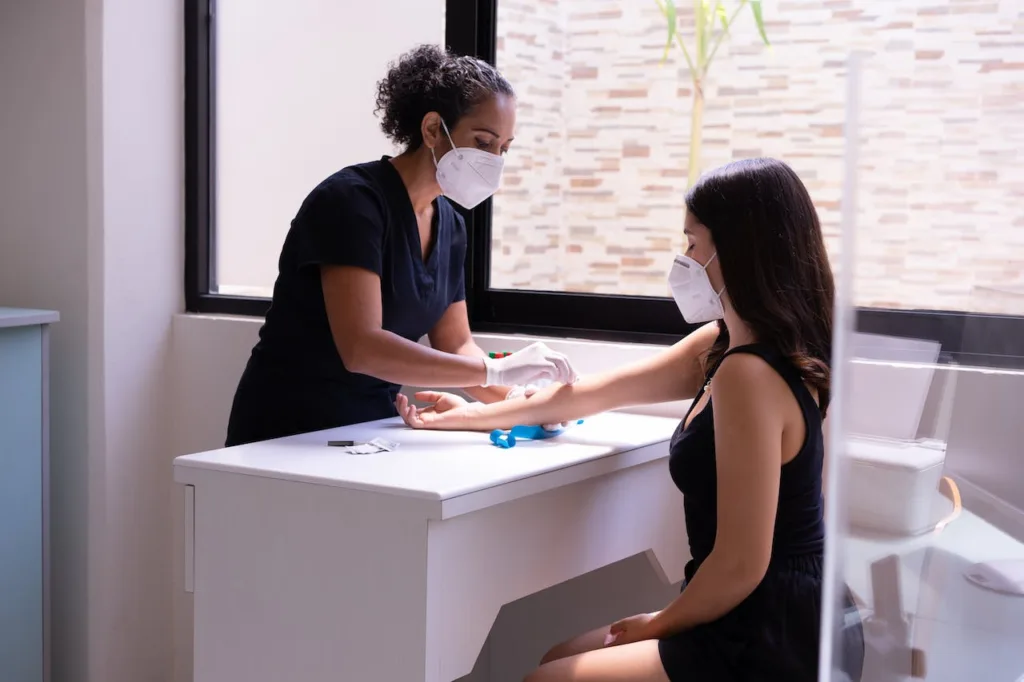South Africa, with its diverse landscapes and vibrant culture, is a popular travel destination.
However, understanding the risks of malaria is crucial for travelers – even for Johannesburg, Cape Town and more. Malaria transmission occurs in specific regions in the country, and varies throughout the year.
South Africa Regions with High Malaria Risk
1) Kruger National Park and Wildlife Reserves
Embarking on a safari in Kruger National Park? While the breathtaking wildlife is a sight to behold, it’s crucial to be aware of the potential malaria risk in this iconic reserve. Travelers exploring the wonders of Kruger National Park and surrounding wildlife reserves should exercise extra caution.
2) Northern Safari Areas
If you’re heading to the northern safari regions, including destinations like Tzaneen and Phalaborwa, these areas have a heightened risk of malaria transmission. While known for their natural beauty, travelers should be particularly vigilant and take necessary precautions.
3) Scenic Spots in Mpumalanga
Mpumalanga is a malaria-prone location as well – not only Kruger National Park, but also travel destinations like Drakensberg Escarpment as well. The province’s warm and subtropical climate, combined with its concentration of mosquitos, creates a high-risk environment.
Seasonal Malaria Risk
Understanding the malaria risk timeline is crucial for travelers planning a visit to South Africa. The risk of contracting malaria is generally higher during specific periods, closely tied to weather conditions.
- Warmer, Rainy Seasons – The risk of malaria is also influenced by rainfall patterns. Rainy seasons, which occur from October to March in different parts of South Africa, create ideal breeding conditions for mosquitoes. The increased prevalence of stagnant water provides fertile grounds for mosquito reproduction, contributing to a higher risk of malaria transmission.
- September to May – This period spans out further, including both the warmer and rainy seasons. During these months, you can expect mosquitos to become more prevalent, and it’s the time period when most travelers contract malaria throughout the year.
Preventive Measures for Travelers
Malaria Tablets: Choosing the Right Medication
Before embarking on a journey to malaria-prone areas in South Africa, obtaining a prescription for antimalarial medications is recommended by health experts.
Commonly Prescribed Medications:
Malarone (atovaquone-proguanil), doxycycline, and mefloquine are commonly prescribed – with Malarone often most-recommended by many doctors (due to high effectiveness and relatively low side effects).
Timing for Protection:
Beginning the prescribed medication before entering malaria-prone areas is vital. Different medications have specific requirements, and a healthcare professional can provide personalized advice on when to start and how much to take.
Getting a Prescription for Malarone
Need a quick and convenient way to get your antimalarial prescription for Malarone? Runway Health offers a streamlined process, making it easy for travelers to access the necessary medications.
- Online Consultations – Virtually connect with licensed healthcare professionals, allowing you to discuss your travel plans and receive personalized advice from the comfort of your home.
- Fast Prescription & Doorstep Delivery – Once approved, your prescription for Malarone is processed swiftly, and shipped to your address in 3-5 days. No need to schedule appointments, or deal with wait times.
- Below-Retail Pricing – Transparent & more affordable pricing, compared to alternatives on the market. Save time and money compared to traditional healthcare visits, primary care & travel clinics.
Useful Tips for Malaria Prevention in South Africa
Basic measures like using insect repellent, wearing long-sleeved clothes, and sleeping under bed nets treated with insecticides are essential, particularly during dusk and dawn when mosquitoes are most active.
Avoiding areas with stagnant water, such as ponds and puddles, is crucial. Opting for accommodations with mosquito control measures adds an extra layer of protection.
Recognizing the symptoms of malaria, including fever, chills, headache, and muscle aches, is crucial. Even for individuals consistently taking malaria tablets, seeking medical attention promptly if these symptoms occur is crucial.
Popular Locations in South Africa – Any Concern?
As a traveler, you might be wondering about South Africa’s most popular travel destinations – along with any malaria risks.
1) Cape Town and Western Cape
Cape Town and its surroundings are medium-risk for malaria. It’s advisable to take preventive measures if you plan to explore this area, even if only visiting for a couple or few days.
If you plan to remain indoors for most of your trip, risk becomes relatively low. However, spending time outdoors begins to increase the risk of transmission.
2) Garden Route
This picturesque route is known for its natural beauty. The malaria risk in this area is medium – so taking precautions is recommended, especially if venturing into higher-risk regions as well.
3) Johannesburg and Gauteng Province
Urban areas like Johannesburg are medium-risk, and precautionary measures are wise to take, no matter where you venture in South Africa. Be mindful of temperature, nearby water and dawn/dusk hours.
FAQs on South Africa Travel and Malaria:
How likely am I to get malaria in South Africa?
The risk varies by region and season. Remember – high-risk areas include Kruger National Park, Limpopo, and Mpumalanga provinces. Taking preventive measures, including malaria tablets, is crucial.
Can I rely solely on mosquito repellent, or do I need malaria tablets?
While repellent helps, malaria tablets are a crucial preventive measure, especially in higher-risk regions. Consult with a healthcare professional for personalized advice.
Do I need to take malaria tablets if I’m only visiting urban areas?
While risk is lower in urban areas, taking malaria tablets is still recommended. There have been many cases where travelers contract malaria in low-risk areas, and preventive antimalarials have very limited downside.
Is South Africa well-equipped to treat individuals who contract malaria?
Yes, South Africa has well-established healthcare facilities and medical infrastructure.
Hospitals and clinics in urban areas, tourist destinations, and even some rural regions are well-equipped to handle malaria cases. Health professionals are trained to diagnose and treat malaria effectively. It’s advisable to seek immediate medical attention if malaria symptoms are suspected.
Final Thoughts on Malaria Risk in South Africa
Understanding the risks and preventive measures for malaria in South Africa is essential for a safe and enjoyable travel experience.
By incorporating these precautions into their plans, travelers can explore the beauty of this diverse country with confidence in their health protection measures. For a hassle-free antimalarial prescription process, consider using Runway Health.

